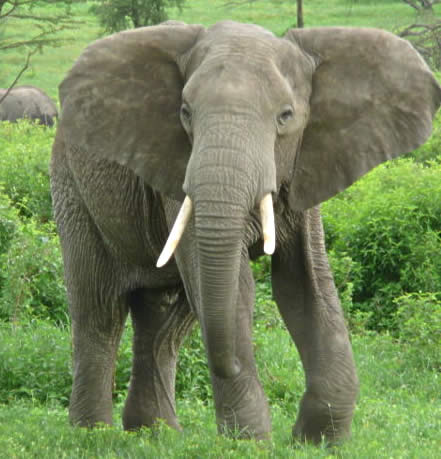Fables are as ubiquitous in childhood as our favorite toys and the hide-and-seek game are. These stories are told all over the world, usually involving animals with humanlike natures—a wise owl as the narrator, or a cunning fox who’s constantly scheming. As kids, we learn important moral lessons from them, but we also learn to associate animals with these character traits. Such stereotypes permeate our culture, so it becomes hard to distinguish which are based in reality and which are simply fables. But is there any truth to the way we often think of certain creatures?
1. Does an elephant never forget?

Elephants have the largest brains of any land mammal around (which should come as no surprise to anyone who’s seen an elephant). But within that giant brain is a highly organized and developed olfactory area, which is tied to sense of smell. Elephants have an extremely adept ability to pinpoint and recall a number of scents, helping them determine who’s family and who’s a stranger when an unfamiliar elephant comes around. They can recognize relatives by smelling their urine, even after several years without contact.
Matriarch elephants, the females who control the herds, are especially good about remembering details that increase survival chances. In 2008, researchers from the Wildlife Conservation Society and the Zoological Society of London studied elephant mortality rates following a particularly severe drought in Tanzania’s Tarangine National Park. They found that the mothers who led their elephant families out of the park, and thus had higher survival rates, were old enough to remember the last terrible drought—which happened thirty-five years prior to the drought in Tarangine. The elephants who stayed in the park (and comprised 63 percent of the deaths) were too young to know about the previous drought. Elephants do have an astounding memory for what’s necessary to survive, especially when it’s fueled by their even more astonishing sense of smell.
2. Are all dolphins as friendly as Flipper?
Dolphins have a great reputation among humans for the most part, thanks to popular TV shows and movies. And well before these mediums existed, stories about dolphins’ saving humans circulated for hundreds of years. More recently, in 2007, a school of bottlenose dolphins encased a Monterey, California, surfer in a protective circle to rescue him from a great white shark attack.
These sea mammals are thought to be smart and sociable, but remember that such characteristics can vary by species—and there are over thirty in the dolphin category. Just as they differ in size and shape, they can vary in temperament and curiosity levels, too. Some will be playful, but others might feel provoked and turn aggressive. Dolphins sometimes kill their own young and porpoises for reasons unknown. Some have even tried to mate with people who happen to wander by in the water, creating a dangerous and harmful situation for humans. So, even though dolphins can be helpful and friendly, they’re still wild animals and should be treated accordingly.

No comments:
Post a Comment